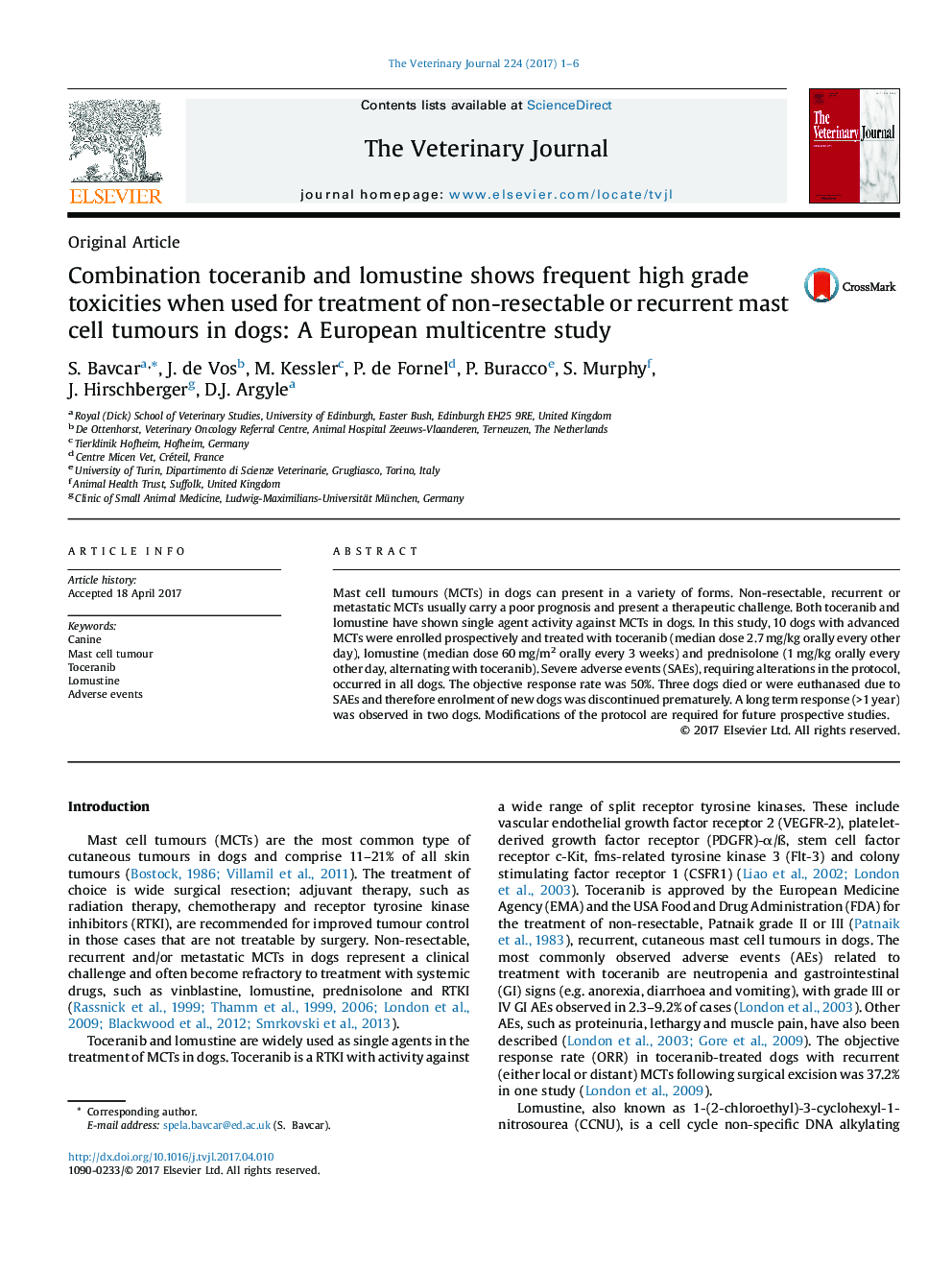| Article ID | Journal | Published Year | Pages | File Type |
|---|---|---|---|---|
| 5544924 | The Veterinary Journal | 2017 | 6 Pages |
â¢Non-resectable, recurrent and/or metastatic mast cell tumours (MCTs) in dogs represent a clinical challenge.â¢Ten dogs with MCTs were treated with a combination of toceranib, lomustine, and prednisolone.â¢The number of significant adverse events was relatively high.â¢Neutropenia was the most commonly noted adverse event, but was of low clinical importance.â¢Significant gastrointestinal side effects resulted in exclusion of four dogs from the study.
Mast cell tumours (MCTs) in dogs can present in a variety of forms. Non-resectable, recurrent or metastatic MCTs usually carry a poor prognosis and present a therapeutic challenge. Both toceranib and lomustine have shown single agent activity against MCTs in dogs. In this study, 10 dogs with advanced MCTs were enrolled prospectively and treated with toceranib (median dose 2.7Â mg/kg orally every other day), lomustine (median dose 60Â mg/m2 orally every 3 weeks) and prednisolone (1Â mg/kg orally every other day, alternating with toceranib). Severe adverse events (SAEs), requiring alterations in the protocol, occurred in all dogs. The objective response rate was 50%. Three dogs died or were euthanased due to SAEs and therefore enrolment of new dogs was discontinued prematurely. A long term response (>1Â year) was observed in two dogs. Modifications of the protocol are required for future prospective studies.
